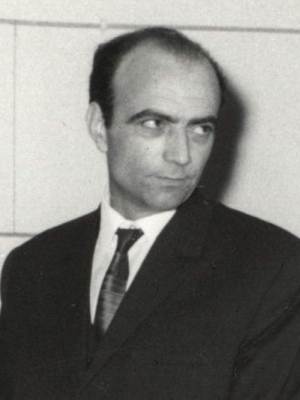Boško Krunić facts for kids
Quick facts for kids
Boško Krunić
|
|
|---|---|
 |
|
| 10th President of the Presidency of the Central Committee of the League of Communists of Yugoslavia | |
| In office June 30, 1987 – June 30, 1988 |
|
| President | Lazar Mojsov and Raif Dizdarević |
| Preceded by | Milanko Renovica |
| Succeeded by | Stipe Šuvar |
| President of the Presidency of the Provincial Committee of the League of Communists of Vojvodina | |
| In office April 28, 1984 – April 28, 1985 |
|
| Preceded by | Slavko Veselinov |
| Succeeded by | Đorđe Stojšić |
| In office April 28, 1981 – April 28, 1982 |
|
| Preceded by | Dušan Alimpić |
| Succeeded by | Marko Đuričin |
| Personal details | |
| Born | 21 October 1929 Prhovo, Danube Banovina, Kingdom of Yugoslavia |
| Died | 23 January 2017 (aged 87) Novi Sad, Serbia |
| Political party | League of Communists of Yugoslavia (SKJ) |
Boško Krunić (born October 21, 1929 – died January 23, 2017) was an important politician from Yugoslavia. He was a member of the Communist Party, which was the main political party in Yugoslavia at that time.
He held a very important job as the chairman of the Presidency of the League of Communists of Yugoslavia. He did this for one year, from 1987 to 1988. Before that, he also led the League of Communists in a region called Vojvodina. He served there from 1981 to 1982, and again from 1984 to 1985. Boško Krunić passed away in 2017 when he was 87 years old.
A Time of Big Changes
In 1988, Boško Krunić stepped down from his role in the League of Communists of Vojvodina. This happened during a period of major political changes in Yugoslavia. These changes are sometimes called the "Anti-bureaucratic revolution."
This "revolution" was a time when many people wanted the government to be more open and less controlled by a few officials. They felt that the system had too many rules and was too slow. People wanted things to be different.
In Vojvodina, these changes were led by a politician named Mihalj Kertes. The pressure from these events led to Krunić's resignation. It was a challenging time for many leaders in Yugoslavia as the country faced big shifts.
Images for kids
 | Victor J. Glover |
 | Yvonne Cagle |
 | Jeanette Epps |
 | Bernard A. Harris Jr. |


